Brigid Berlin
Birth : 1939-09-06, New York, New York
History
Brigid Berlin is an American artist and former Warhol superstar.

Self (archive footage)
In a hypercompetitive world, drugs like Adderall offer students, athletes, coders and others a way to do more -- faster and better. But at what cost?

Self
Stephen Smith sets out to discover the real Andy Warhol - in the hour-by-hour detail of his daily life.

1967 (made in 2015) presents newly found and digitized silent 16mm films from the 1960s in the form of a four-part composition portraying a cast of artists, writers, musicians and actors who made up the bohemian underground of that time. The film recasts the essence of a scene whose participants have since been idealized as celebrities or else forgotten.

The Feature does not reconcile fact and fiction; instead, it blurs the definitions seemingly represented by the film’s two clearly demarcated registers: that of the archival footage and that of the new, theatrical material. In his guise as “Michel Auder,” living a fulsome and extravagant life, replete with beautiful women and a rock-cut pool overlooking Los Angeles, the art world is revealed as a sham, and his character exhibits a repulsive narcissism. And yet, when caught in quiet moments, something poignant emerges—a glimmer of truth that rebels against the entire endeavour. Or maybe, that’s what makes The Feature.

Takes an in-depth look at the lives and times of the people who hung out with Andy Warhol and "worked" at the Silver Factory during the Sixties, making it all click as a new counter-culture arose and began to exert its influence throughout the arts.

Herself
Esther Robinson's portrait of her uncle Danny Williams, Warhol's onetime lover, collaborator and filmmaker in his own right, offers a exploration of the Factory era, an homage to Williams's talent, a journey of family discovery and a compelling inquiry into Williams's mysterious disappearance at age 27.
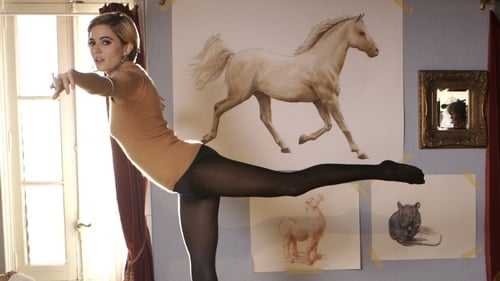
Associate Producer
In the mid-1960s, wealthy debutant Edie Sedgwick meets artist Andy Warhol. She joins Warhol's famous Factory and becomes his muse. Although she seems to have it all, Edie cannot have the love she craves from Andy, and she has an affair with a charismatic musician, who pushes her to seek independence from the artist and the milieu.

Herself (archive footage)
Andy Warhol, one of the most influential artists of the 20th century (who also coined the immortal catchphrase "In the future, everyone will be famous for 15 minutes"), gets the definitive treatment. This film includes a look into his inner circle and examines both his artistic and personal impact on society. From day-glo Marilyns and Elvises to Campbell's Soup cans to the groovy 1960s and '70s, step into the limelight of the Warhol world.

Herself
Documentary about American artist and former Warhol superstar, Brigid Berlin.
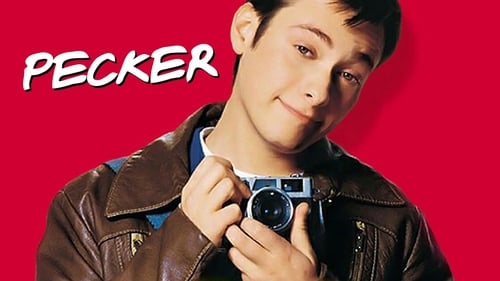
Super Market Rich Lady
A Baltimore sandwich shop employee becomes an overnight sensation when photographs he's taken of his weird family become the latest rage in the art world. The young man is called "Pecker" because he pecks at his food like a bird.
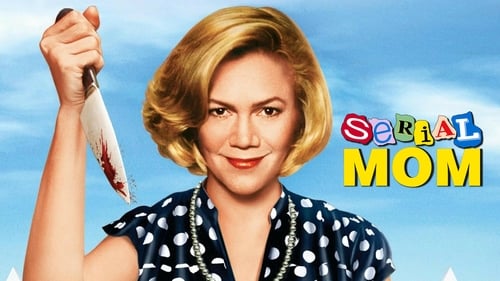
Mean Lady
She's the perfect all-American parent: a great cook and homemaker, a devoted recycler, and a woman who'll literally kill to keep her family happy.

Herself
Documentary on Andy Warhol's cinema of the sixties, made for Channel 4 in association with The Factory, MOMA and the Whitney Museum of Art and in collaboration with Simon Field.

Herself
The first major profile of the American Pop Art cult leader after his death in 1987 covers the whole of his life and work through interviews, clips from his films, and conversations with his family and superstar friends. Andy Warhol, the son of poor Czech immigrants, grew up in the industrial slums of Pittsburgh while dreaming of Hollywood stars. He went on to become a star himself.

Estelle
Hazel runs a beauty salon out of her house, but makes extra money by providing ruthless women the oppurtunity to perform hit jobs. L.T. is a parasite, and contacts Hazel looking for work after he runs out of money. She is reluctant to use him for a hit, since she prefers using women, but decides to try him on a trial basis. Meanwhile, the cop she pays off wants an arrest to make it look like he's doing his job, but Hazel doesn't want to sacrifice any of her "associates". The sleazy side of life is explored in this delightfully dark and deadpan film.

In 1969 Michel Auder began a series of video diaries that chronicled the art scene in downtown New York. In Chelsea Girls with Andy Warhol, Auder captures revealing moments in Warhol's public and private life: the opening of the 1970 Whitney Museum retrospective, a party held at John Lennon and Yoko Ono's home, a heated telephone conversation between Warhol, Viva and Brigid Berlin, and an illuminating interview conducted with Larry Rivers, the grandfather of Pop Art, following the publication of The Philosophy of Andy Warhol in 1975. The issue of money is a consistent topic of conversation with Viva, who after departing the Factory in 1969 sent Warhol a series of threatening letters demanding money.

Brigid
Warhol superstar and icon of sixties bohemia Edie Sedgwick delivers her final performance in this semiautobiographical look at the price of fame. Fiction and documentary—including snippets from Sedgwick’s own audio dairies—mingle in a freewheeling portrait of Susan Superstar (Sedgwick), a New York celebrity on a drug-fueled downward slide that mirrors Sedgwick’s own self-destructive spiral. Released after her death from an overdose of barbiturates, CIAO! MANHATTAN endures as a testament to Sedgwick’s unique magnetism and as a haunting elegy for the counterculture she embodied.

Herself
David Bailey, self-taught photographer and one of the prime architects of the Swinging Sixties, broadened his horizons in the early 1970s by making high-profile documentaries for ATV. With his standing among the artistic community, Bailey was given unprecedented access to Pop Art legend Andy Warhol and his followers, in an attempt to penetrate behind the expressionless exterior of a man who was one of the most controversial figures of his generation.

An improvised hour-long fight between Brigid Berlin & Charles Rydell. Produced by Andy Warhol.
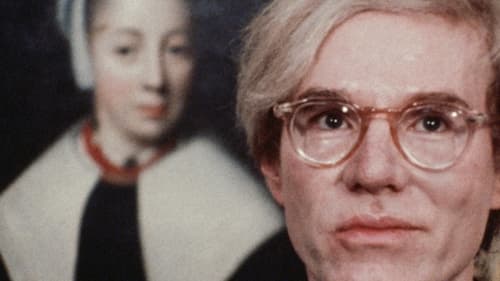
Self
With a rambling, unstructured style that echoes Andy Warhol’s own approach to filmmaking, this documentary profiles his career, showing him to be a brilliant manipulator, dedicated voyeur and person of astute commercial judgment.

Bar Owner
Three women join a militant feminist group, P.I.G. (Politically Involved Girls), but their newfound liberation doesn't make them any happier.

Wife to Ondine
Ondine is a gay man attempting to re-adjust his sexuality via various encounters with different women. After trying his luck with three women, Ondine becomes a background character in a sequence in which a group of Latin American men, calling themselves The Bananas, engage in a food fight. Ondine then engages in a wrestling match with Joe Dallesandro, who is married to Brigid Berlin.

Ondines Frau
Photographed entirely in color, Four Stars was projected in its complete length of nearly 25 hours (allowing for projection overlap of the 35-minute reels) only once, at the Film-Makers' Cinematheque in the basement of the now-demolished Wurlitzer Building at 125 West 41st Street in New York City. The imagery in the film is dense, wearying and beautiful, but ultimately hard to decipher, for, in contrast to his earlier, and more famous film Chelsea Girls, made in 1966, Warhol directed that two reels be screened simultaneously on top of each other on a single screen, rather than side-by-side.

Girl in tub
At a New York City restaurant, the patrons are men, nude but for a G-string, waited on by one woman, also clad in a G-string and a G-bestringed waiter.

Mother
Warhol's Factory visits Los Angeles.

Woman with husband
Joe Spencer, a member of a motorcycle gang, is taking a shower. After his bout with personal hygiene, Joe encounters Andy Warhol's "superstars," who engage him in conversation. The superstars crack jokes he doesn't understand and continually correct his poor pronunciation in an attempt to deflate his machismo. In response to these provocations, Joe becomes more obscene and more boasting, but ultimately, he cannot compete with the put-downs that are part of the put-on performances of the Warhol superstars, who prevail over him in the end.

"Tub Girls" features Warhol superstar Viva lying in a bathtub with different people of both sexes, including Brigid Berlin (as Brigid Polk), who appeared fully clothed in the tub.
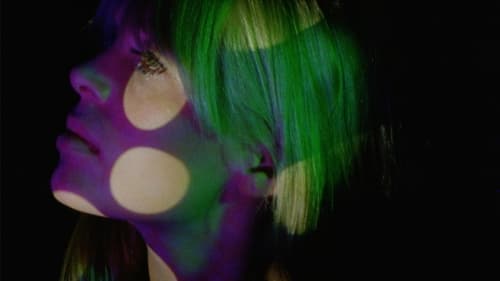
Self - The Duchess
Lacking a formal narrative, Warhol's mammoth film follows various residents of the Chelsea Hotel in 1966 New York City. The film was intended to be screened via dual projector set-up.






















